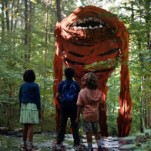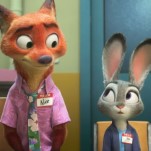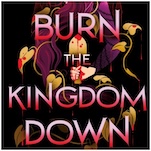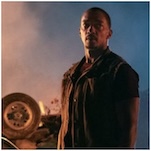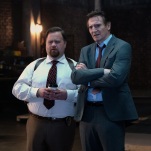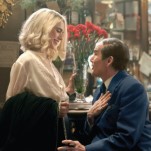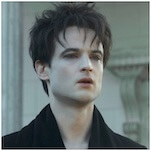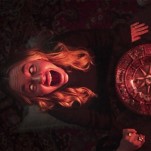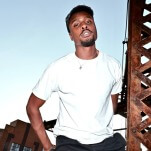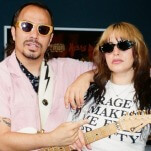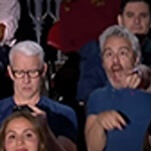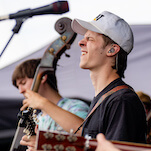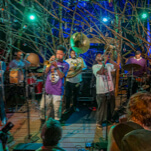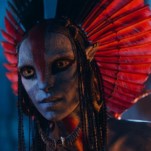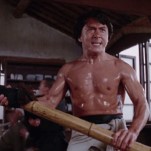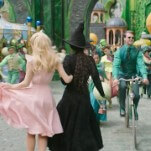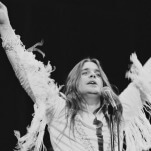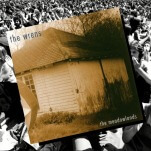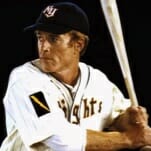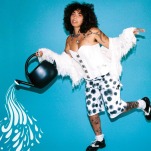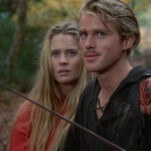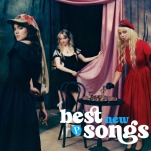Bill Kartalopoulos on the Evolving Legacy of Best American Comics
Fall has descended, and that means it’s time for another annual Best American Comics entry, a fat volume that does its damnedest to represent what was particularly good in the medium over the past 12 months. The 2014 edition includes comics published September 1, 2012 through August 31, 2013, and, for the first time in a long time, a new editor oversaw the series alongside guest editor Scott McCloud. That new editor, Bill Kartalopoulos, definitely earned the job: he teaches comics at the School for Visual Arts in New York, serves as editor/publisher of Rebus Books and programming coordinator for SPX: The Small Press Expo and is also the programming director for the MoCCA (Museum of Comic and Cartoon Art) Arts Festival. To top it off, he cut his teeth assisting Maus creator Art Spiegelman for some years.
Kartalopoulos welds a hefty résumé, but his curriculum vitae boils down to one simple fact: the man eats, sleeps and breathes comics and is an apt choice to take the reins from previous editors Jessica Abel and Matt Madden. Between his daily gauntlet of editing and producting, Kartalopoulos somehow found some time in his busy schedule to answer some questions about the The Best American Comics 2014, published earlier this month.
![]()
Paste: How did you approach this project differently from Anne Elizabeth Moore (who selected excerpts for 2006 and 2007) and Jessica Abel and Matt Madden (2008-2013)? What strengths do you think you have that are different from theirs, in other words?
Kartalopoulos: Although we’re certainly different people with different critical points of view, in terms of overall approach there may be more similarities than differences. Anyone who’s been given the responsibility of serving as Series Editor for The Best American Comics seeks to maintain a high level of quality that reflects the current state of the comics field, and stands up to the quality of work in the other Best American titles. Any Best American Series Editor is committed to carefully and seriously considering all of the work that arrives through the open submission process. Beyond that, we all draw upon our experience, our networks and our personal critical sensibilities to make sure we’re finding material that best represents our field. We really sweat it out to make the best possible critical decisions that we can along the way.
Anne, Matt, Jessica and I have all demonstrated a high level of engagement with comics in our careers, though obviously in different ways. Anne has edited The Comics Journal; she initiated the Ladydrawers series and is currently editing comics reviews for the LA Review of Books, among many other projects. Matt and Jessica are cartoonists themselves; they taught comics at the School of Visual Arts for several years and have authored textbooks. I’ve also done a lot of teaching, first at Parsons and currently at SVA. I’ve worked as Art Spiegelman’s assistant and curated comics exhibits. I’ve done a lot of work organizing comics festivals, which puts me in touch with a lot of cartoonists and publishers, both well-known and still-emerging.
All of us who have worked in the Series Editor role share a commitment to great comics, and we’ve all expressed that through different kinds of engagement with the comics field. There is no doubt that I bring a different background and a distinct point of view to the material as I work with each year’s Guest Editor, and I am certain that it has an effect on the final book. But I suspect that it might be better for an outside observer or critic to look at the work that I do and try to articulate what the difference may be.
Paste: Where do you see the compilation going in the future? Do you have a wish list for folks to guest edit it down the line?
Kartalopoulos: In very general terms, I’m planning to maintain a high level of quality within the series and to keep pace with the wild diversity of the comics field. I’m especially committed to tracking new developments in comics (in style, form, materials, narrative, format, etc.), particularly in work that might still be under the radar of mainstream culture. That’s where the breakthroughs in any art form usually begin. I’ve been alert to that kind of work throughout my career, and I intend to stay on top of that. But it’s hard to make specific predictions, because each year we’re looking at a totally fresh pool of work. And each year I’m working with a different Guest Editor, who brings a different point of view to the subject matter.
Even now, I’m currently at the tail-end of my reading period for The Best American Comics 2015, and based on the work before me it’s quite clear that next year’s book will be different in character from the 2014 volume. But even I don’t know exactly how that difference will express itself until the Guest Editor makes his or her selections. There’s a moment in the process where I receive the Guest Editor’s final selections, and I get to be as excited and surprised as anyone opening the book for the first time. I just hear about it much earlier than readers do, and then have to do a lot of work with the dedicated professionals at Houghton Mifflin Harcourt to turn that list into the beautiful book that shows up in bookstores and libraries several months down the line.
I think anyone who takes on the Series Editor job for any of these titles immediately starts dreaming of a mental wish list of potential Guest Editors. How could you not? It’s a tantalizing prospect to imagine working with people you admire on a project like this. But we do select the Guest Editors carefully to make sure we’re representing a range of viewpoints, and of course there’s the basic question of availability. Most of the people we’d think to invite are themselves very busy working artists, authors and editors. We do have some extraordinary people lined up for upcoming volumes, so I think there are some pleasant surprises in store both for me and for readers of Best American Comics.
-

-

-

-

-

-

-

-

-

-

-

-

-

-

-

-

-

-

-

-

-

-

-

-

-

-

-

-

-

-

-

-

-

-

-

-

-

-

-

-





